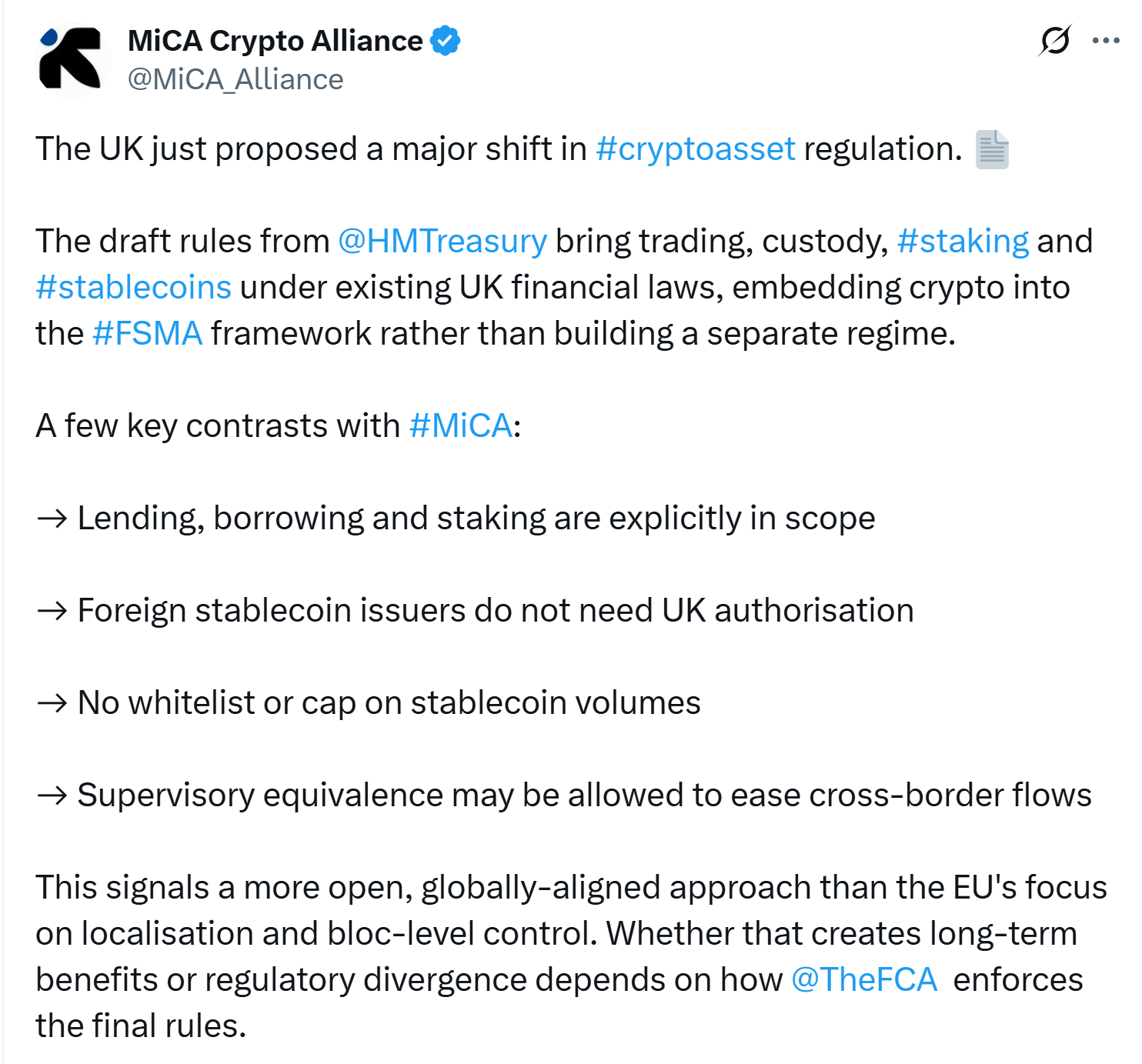
UK Embraces Robust Crypto Regulations
The UK is taking a significant step towards becoming a global leader in digital assets with its new draft regulations aimed at establishing a ‘safe harbor’ for crypto firms. The proposed rules, unveiled by UK Finance Minister Rachel Reeves in April 2025, outline a comprehensive regulatory framework designed to attract global players while prioritizing consumer protection and financial stability.

Comprehensive Regulatory Regime
The proposed rules, outlined in the Financial Services and Markets Act 2000 (Cryptoassets) Order 2025, introduce six new regulated activities for crypto, including trading, custody, and staking. Instead of a light-touch approach like the EU’s MiCA framework, the UK is adopting a more robust approach, applying the full weight of securities regulations to crypto. This includes capital requirements, governance standards, market abuse rules, and disclosure obligations.
Industry Reactions: A Mix of Optimism and Concerns
Industry experts have expressed a mix of optimism and concerns regarding the new regulations. Dante Disparte, chief strategy officer and head of global policy at Circle, believes the UK is positioning itself as a safe harbor for responsible innovation by providing regulatory clarity.
“The UK’s draft crypto regulations represent a meaningful step toward embracing a rules-based digital asset economy,” said Disparte. “By signaling a willingness to provide regulatory clarity, the UK is positioning itself as a safe harbor for responsible innovation.”
Vugar Usi Zade, chief operating officer (COO) of Bitget exchange, also sees the new regulations as a positive step, stating that they provide much-needed clarity for businesses.
“I think a lot of companies recently exited or hesitated to enter the UK because they were not clear about what activities, products, and operations need FCA authorization,” Zade said. “Firms finally get clear definitions of “qualifying crypto assets” and know exactly which activities—trading, custody, staking or lending—need FCA authorization.”
However, some experts have raised concerns about the impact of certain provisions, such as the reclassification of stablecoins as securities. This change could potentially slow the use of stablecoins for payments, according to Zade.
Key Features of the New Regulations
- Full FCA Approval: Crypto exchanges operating in the UK will need full approval from the Financial Conduct Authority (FCA) to offer trading, custody, staking, or lending services.
- Territorial Reach: Non-UK platforms serving UK retail clients will also require FCA authorization, effectively ring-fencing the UK retail market.
- Stablecoin Reclassification: Stablecoins are reclassified as securities, requiring prospectus-style disclosures and redemption protocols.
- Expanded Custody Rules: New custody rules apply to any setup granting unilateral transfer rights, including certain lending and multiparty computation (MPC) arrangements.
- Staking Regulation: Liquid and delegated staking services must register, while solo stakers and interface-based providers are exempt.
The Road Ahead: Clarity and Implementation
The FCA plans to publish final rules on crypto sometime in 2026, paving the way for the UK’s new regulatory regime to go live. The roadmap to greater regulatory clarity in the UK mirrors the European Union, which began implementing its MiCA framework in December.

The UK’s bold move to establish a ‘safe harbor’ for crypto has the potential to attract international investment and drive innovation in the digital asset space. However, the long-term impact of these regulations remains to be seen, and their implementation will be closely watched by industry players and regulators alike.


